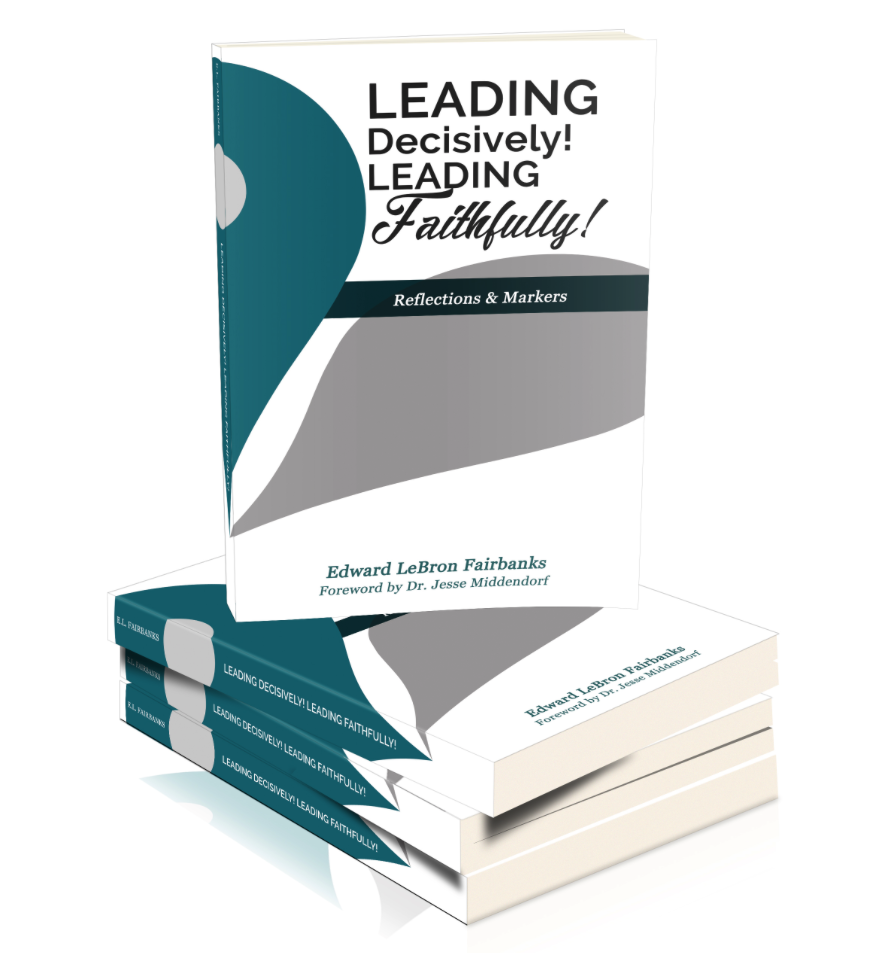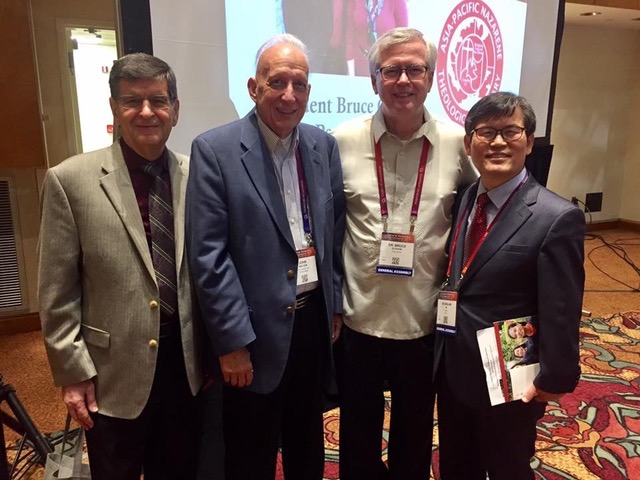Faculty of the Seminary of the Americas
San Jose, Costa Rica 2010
Over the years, I have thought much about the Philippians 4:10-20 passage on contentment. You remember the passage: “I have learned to be content, whatever the circumstance. I know what it means to be in need, and I know what it means to have plenty. I have learned the secret of being content in any and every situation, whether well fed or hungry, whether living in plenty or in want.”
I chose to speak on this subject recently at the 2010 graduation service for the Seminary of the Americas in San Jose, Costa Rica. Initially I had planned to focus my remarks on the significance of the Seminary over its 40 years of equipping Christian leaders in Central and South America. The more I prayed about the theme on which I should speak, the more the “contentment” passage stayed with me.
Click here to read the full address of the sermon.

What does it mean to be content? And what is the nature of contentment? Does biblical contentment mean that Christian leaders must be passive? Are we required to accept whatever comes our way?
How does sanctified ambition relate to contentment? Should pastors cast a vision that pushes the congregation out of their comfort zones? What about God inspired goals for the future? How do these goals relate to biblical contentment?
This critical Pauline theme of contentment transforms our pastoral ministry. Biblical contentment is similar to the Hebrew word is shalom. This great Hebrew word means living in peace with God, ourselves, and others around us. It will hold us steady when we are tempted to runaway from our ministry assignment! Being at peace with God and with ourselves can so easily slip from us in our consuming and sometimes draining of caring for others.
It is often elusive and challenging. There is the irony of contentment. And barriers to contentment. There is, however, the reality of biblical contentment and Shalom that you and I can understand and experience.
The irony is this: We tend to think that we know what is best for our lives, and we ask God for it (and if God grants our prayers, we will be content!) The text reminds us that God can give us inward peace in whatever situation He places us!
Paul wrote the passage on contentment in Philippians 4:10-20 while in prison. The previous two years he had been in another prison near Jerusalem, insulted by the Roman governor of the area, shipwrecked on his way to Rome, without food for fourteen days, and then placed in jail when he arrived in Rome!
But did Paul “moan?”? Complain? Whine? Blame others for his predicament? Engage in a “pity party?”
This is fascinating. In Rome, while in prison, Paul did not focus on what he could do if he had more resources. Or if he pastored in another location, worked for a different boss. or had more Christian co-workers. He did not focus on “why?”, “why me?” or “what if?” Instead, while in chains in prison in Rome, Paul wrote letters. Letters we know as the Prison Epistles – Philippians, Ephesians, Colossians, and Philemon! He “bloomed” where he was planted!” And, according to Philippians 4:7, God gave to Paul contentment and an inner peace.
You may not work at the place you prefer, earn the money you desire to earn, have the boss and co-workers you believe you need. In these very situations, however, as difficult, unfair, and challenging as they may seem and be, you can experience a contentment which defies understanding!
One of the greatest barriers to biblical contentment is comparison. Comparing the gifts God has given to me with the gifts He has given to others.
I have come to see that comparison is the enemy of contentment. Comparison is pervasive – in our education institutions, positions at work, the money we earn, the places we live, even the cars we drive. We can be grateful and thankful for the gifts God has given to us . . . until we compare our gifts from God to His gifts to others!
Another barrier to contentment is our circumstances.
Paul could have said, “Why am I in prison?” “Why didn’t I listen to friends?” His friends in the cities of Tyre and Caesarea begged Paul not to continue his journey to Jerusalem knowing that he would face persecution and prison.
You and I have these continual temptations: “If I had just listened to . . .” “Life is greener on the other side.” “If I were there, I could . . . “ “If I had this . . . or that . . .”
Yet another barrier to contentment is people.
I have come to see that in any situation, there will be people. With the people we work will come problems and possibilities. Will we focus on the problems? Or will we focus on the possibilities and potential?
In the situation where Paul found himself, he witnessed to many in jail! He wrote letters to the young churches. Paul encourages us to focus on the possibilities of our circumstances. Not on our problems with the people with whom we live, worship, and work.
Biblical contentment is slippery and we can miss it. However, it is not impossible to understand and experience. The secret of contentment is not grounded in the people who disappoint us. Or circumstances that distract us. Not even or problems that overwhelm us.
The secret of biblical contentment is grounded in gratitude. Contentment is rooted in a focus on God and His mercy and grace, not in a preoccupation with people and problems. The foremost quality of a contented person is gratefulness.
Listen again to Philippians 4:5-6. “Let your gentleness be evident to all. Do not be anxious about anything, but in everything, by prayer and petition, with thanksgiving, present your request to God.” And what is the result? “And the peace of God which transcends all understanding will guard your hearts and minds in Christ Jesus!”
Gratitude – thanksgiving – arises out of our acceptance that all of life is grace. All that we are and all that we have is a grace gift from the Father’s Hand. A life of biblical contentment is holiness of heart lived out daily in the life of a Christian leader.
This God-centered character of gratitude is anchored in an unshakeable trust that there is a God who is sovereign and whose providential care guides His People. Contentment does not make us grateful. Rather it is gratitude that makes us contented.
Things go wrong. People disappoint us. Congregations and friends will misunderstand us. At times there will be seemingly irreconcilable differences that exist within the faith community between good and godly people. In all of these times, we can choose to believe in the sovereignty of God. We can trust Him with our lives and with the situations before us. In the midst of unrest within the congregation, we can choose to believe in His watchful care over our lives in the midst of every doubt, question, conflict, and even persecution. He is God, and I choose to trust God supremely. He is enough! God is big enough to handle any situation we encounter.
In the sometimes humanly miserable situations we encounter, we can choose to believe that “In His time, In His time, He makes all things beautiful, In His time! We can choose to believe that “God will make a way when there seems to be no way!” We give our best to our leadership responsibilities . . . and trust Him with the results.
This convictional affirmation is grounded in a radical trust in a Sovereign God. When emotions and circumstances do not suggest this affirmation of faith, we can choose to believe in the Holy God of grace and mercy to see us through.
Contentment does not make us grateful.
Rather it is gratitude that makes us contented.
This is a precious leadership gift!
And it is our challenge. “Give thanks with a grateful heart”
wherever and to whoever God chooses to send us! Amen.

Current students enrolled in graduate programs
on the Seminary of the Americas’ campus
San Jose, Costa Rica 2010
LeBron Fairbanks
November 22, 2010






